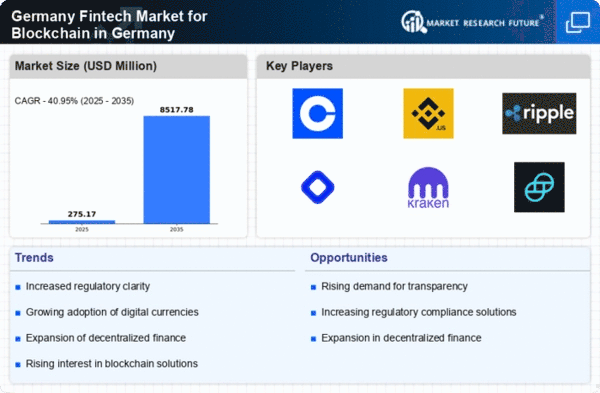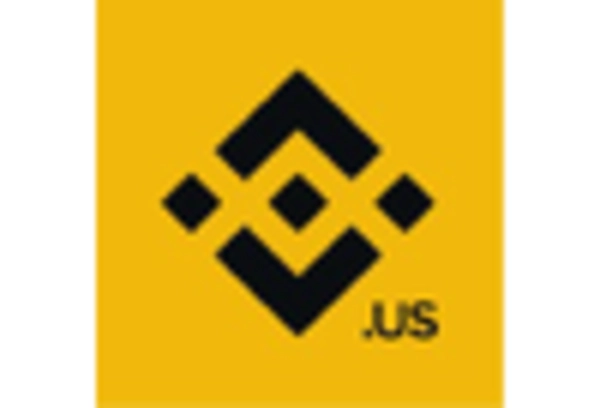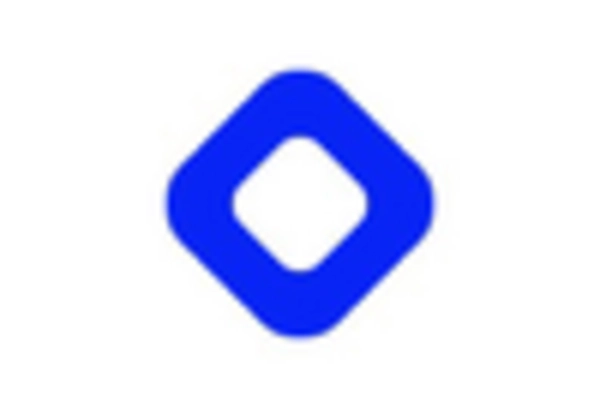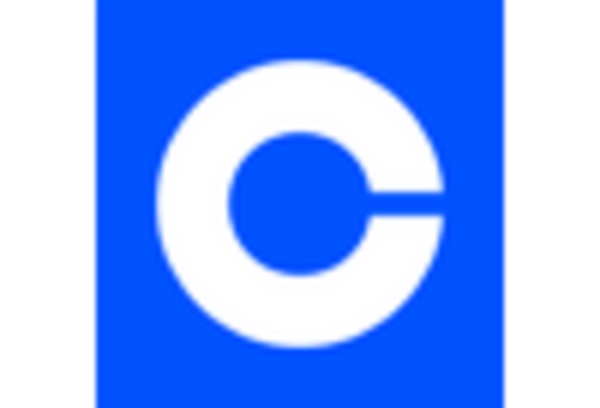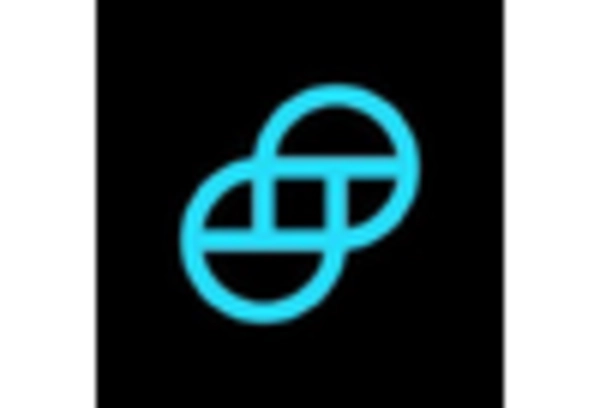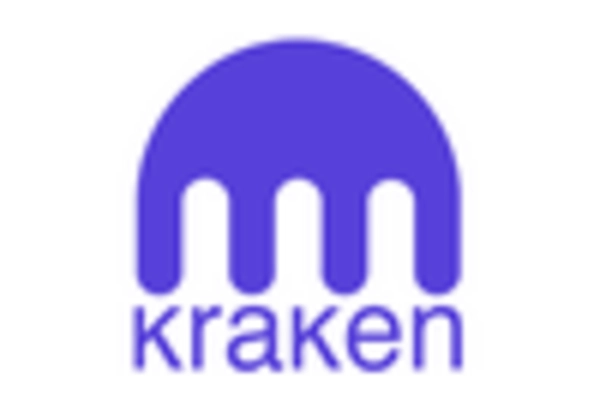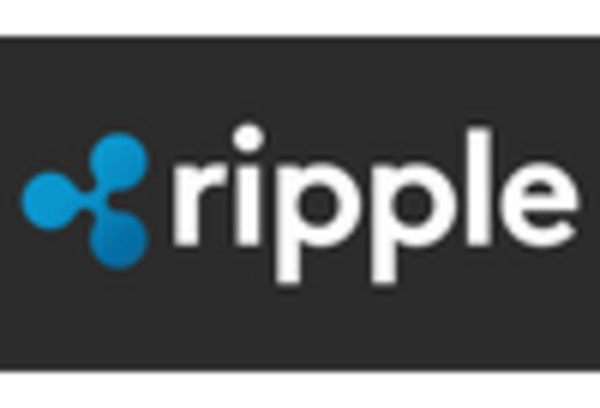Rising Consumer Awareness and Adoption
Consumer awareness regarding the benefits of blockchain technology is on the rise, significantly impacting the blockchain fintech market. Educational initiatives and increased media coverage are contributing to a better understanding of how blockchain can enhance financial services. As of November 2025, approximately 60% of German consumers express familiarity with blockchain applications, indicating a shift in perception. This growing awareness is likely to drive demand for blockchain-based financial products, as consumers seek more efficient and secure alternatives to traditional services. Financial institutions are responding by developing user-friendly blockchain solutions that cater to this informed audience. As adoption rates increase, the blockchain fintech market may experience accelerated growth, driven by consumer preferences for innovative financial solutions.
Technological Advancements in Blockchain
The blockchain fintech market in Germany is experiencing a surge in technological advancements, which are pivotal for its growth. Innovations such as smart contracts and decentralized applications are enhancing transaction efficiency and security. According to recent data, the adoption of blockchain technology in financial services is projected to increase by 30% annually. This rapid evolution is likely to attract more startups and established financial institutions to explore blockchain solutions, thereby expanding the market. Furthermore, the integration of artificial intelligence with blockchain is expected to streamline operations, reduce costs, and improve customer experiences. As these technologies mature, they may redefine traditional financial services, making them more accessible and transparent, which is crucial for the blockchain fintech market.
Increased Investment in Blockchain Startups
The blockchain fintech market is witnessing a notable increase in investment directed towards startups specializing in blockchain technology. In 2025, venture capital funding for blockchain-related ventures in Germany is expected to reach €1 billion, reflecting a growing confidence in the potential of blockchain solutions. This influx of capital is likely to foster innovation and accelerate the development of new applications within the financial sector. Investors are particularly interested in startups that focus on enhancing payment systems, identity verification, and compliance solutions. As these startups thrive, they may contribute to the overall growth of the blockchain fintech market, creating a more competitive landscape that encourages further advancements and adoption of blockchain technologies.
Growing Demand for Transparency and Security
In the context of the blockchain fintech market, there is an escalating demand for transparency and security among consumers and businesses alike. The inherent characteristics of blockchain technology, such as immutability and traceability, are appealing to stakeholders who prioritize secure transactions. A survey indicates that 70% of German consumers are more likely to engage with financial services that utilize blockchain for enhanced security. This trend is prompting financial institutions to adopt blockchain solutions to build trust and credibility with their clients. As the market evolves, the emphasis on transparency is likely to drive further innovation, leading to the development of new products and services that cater to this demand, thereby bolstering the blockchain fintech market.
Regulatory Support for Blockchain Initiatives
Regulatory support is emerging as a crucial driver for the blockchain fintech market in Germany. The government is actively exploring frameworks that facilitate the safe and effective use of blockchain technology in financial services. Recent initiatives suggest that regulatory bodies are keen to create an environment conducive to innovation while ensuring consumer protection. This supportive stance may lead to the establishment of clear guidelines that encourage businesses to adopt blockchain solutions. As regulations evolve, they could potentially reduce barriers to entry for new players in the market, fostering a more dynamic ecosystem. Consequently, this regulatory landscape is likely to enhance the credibility and acceptance of blockchain applications within the financial sector.


